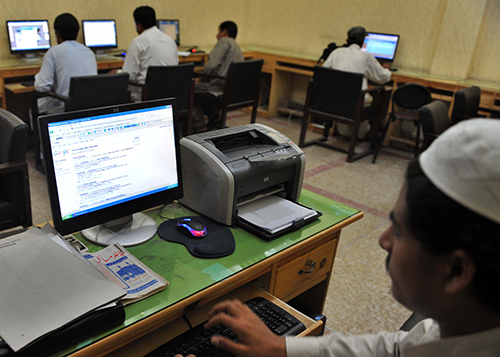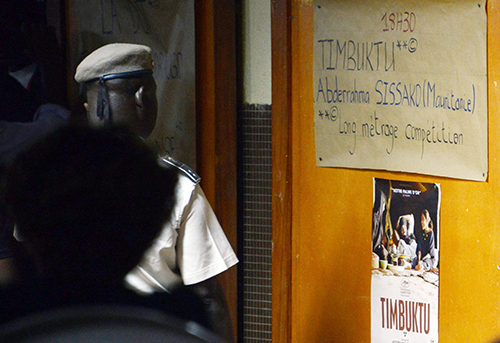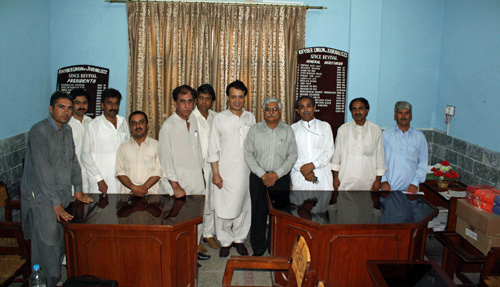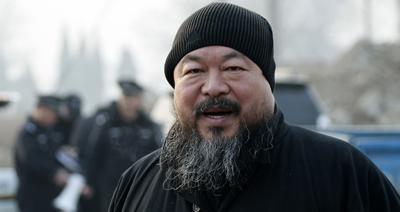Bob Dietz/Asia Program Coordinator
Bob Dietz, coordinator of CPJ’s Asia Program, has reported across the continent for news outlets such as CNN and Asiaweek. He has led numerous CPJ missions, including ones to Afghanistan, Pakistan, the Philippines, and Sri Lanka. Follow him on Twitter @cpjasia and Facebook @ CPJ Asia Desk.

Evolution of Pakistan’s proposed cybercrime law
A pointer to our colleagues at Bolo Bhi, Pakistan’s independent Internet freedom and electronic privacy watchdog (it’s involved in gender issues too). The watchdog has been tracking the evolution of Pakistan’s attempts at cybercrime legislation since 2007.

Media restrictions in Papua underscore Indonesia’s wider problems
With more than 50 years of restricted media access, one of the least covered armed conflicts in the world is the long-simmering struggle between Indonesia’s military and the secessionist Free Papua Movement. Under Indonesia’s seven successive post-independence governments–the early ones led by autocratic strongmen, the recent ones more or less democratically elected–the world has been…

A year after Raza Rumi attack, little change for Pakistan’s beleaguered press
One year ago Raza Rumi, a TV anchor and widely-respected analyst in Pakistan, narrowly escaped death when gunmen opened fire on his car in an attack that killed his driver, Mustafa. When I wrote about the March 28 attack, the fourth on the Express Group in eight months that had left four people dead, I…
Lee Kuan Yew’s legacy
What to make of Singapore’s first and former Prime Minister Lee Kuan Yew, who died Monday morning in the city-state? Under the banner of the People’s Action Party, Lee held government power for three decades. After stepping away from the prime minister’s office in 1990, he held positions of senior minister and later “minister mentor”…

Ban of India’s Daughter and other films silences debate on key issues
What do Delhi, Beijing, and Villiers-sur-Marne have in common, but Ouagadougou does not? The first three recently banned access to films their governments deemed inappropriate. But a film festival in the fourth, the capital of Burkina Faso in West Africa, is stepping up security to show an acclaimed but controversial movie about Islamic militancy in…
What’s behind India’s Internet censorship?
We have been posting a lot about the challenges facing the Internet in India recently–see Mannika Chopra’s “India struggles to cope with growing Internet penetration.” On Tuesday, Angela Saini, a guest blogger on The Guardian’s Comment Is Free site, posted “Internet censorship could damage India’s democracy,” with the subhead “Google and Facebook have been asked…

Movement in Umar Cheema’s case ‘frustratingly slow’
On Wednesday, we identified Pakistan as the country where the most journalists–eight–have been killed for their work in the past year. Six of them were on the job when they were killed in crossfire or a suicide bombing. Two others were assassinated.I’ve been posting reports on one journalist–Umar Cheema–who wasn’t killed, but whose case represents…
Communist Party elders urge end to China’s censorship
Twenty-three senior Communist Party members have published a letter calling for sweeping reforms of China’s media censorship policies. “Our core demand is that the system of censorship be dismantled in favor of a system of legal responsibility,” the letter said, according to an English translation by Hong Kong University’s China Media Project. Widely distributed by e-mail and posted…

On Pakistan’s frontier, home is often the cost of reporting
In an alert on Monday, we reported on an attack that left at least six women and children seriously injured at the home of local television journalist Zafarullah Bonari along the Pakistan-Afghanistan border. A group of unidentified attackers threw grenades and opened fire on Bonari’s house. The information was scant when we first heard about…
